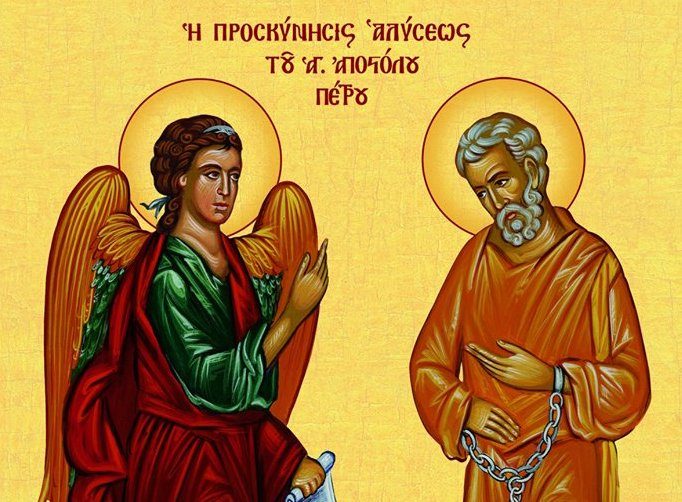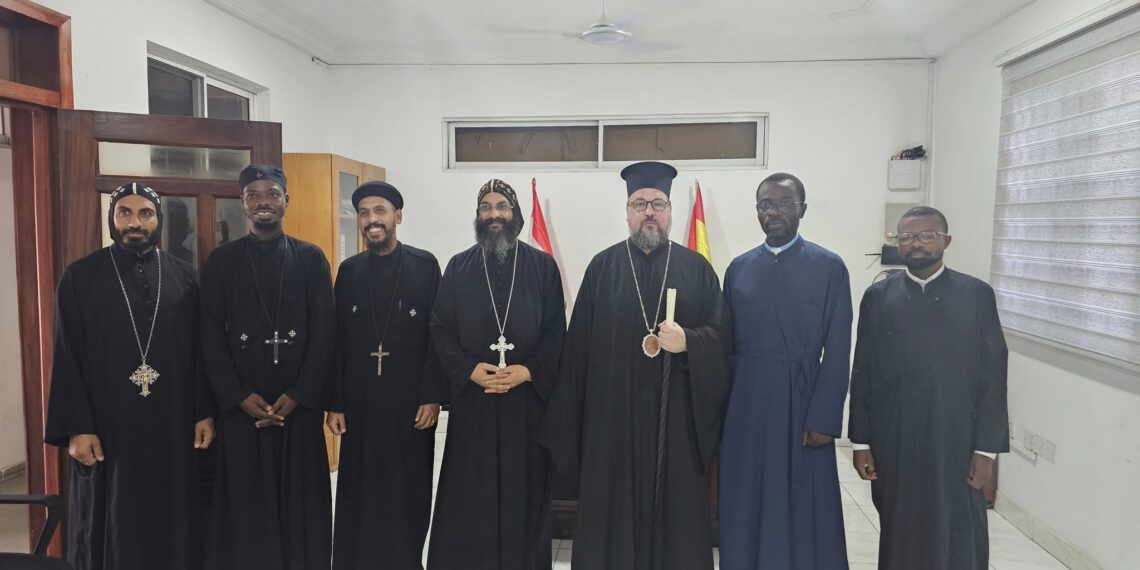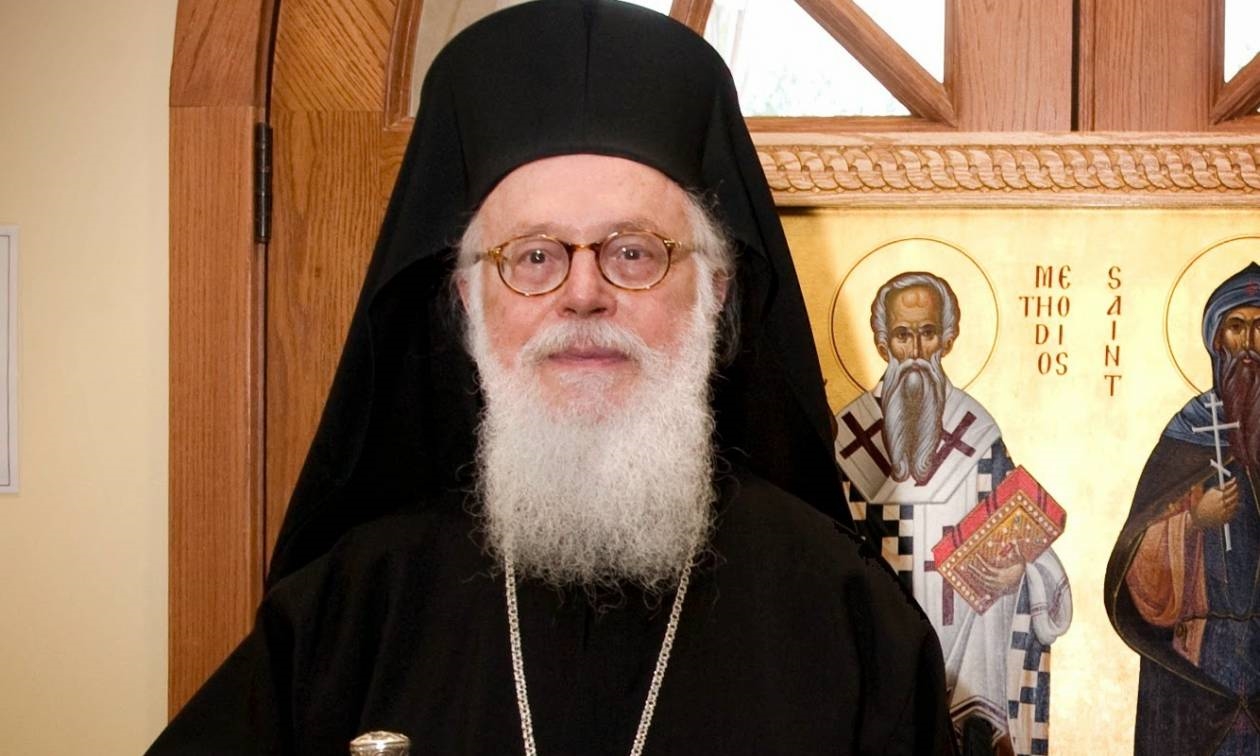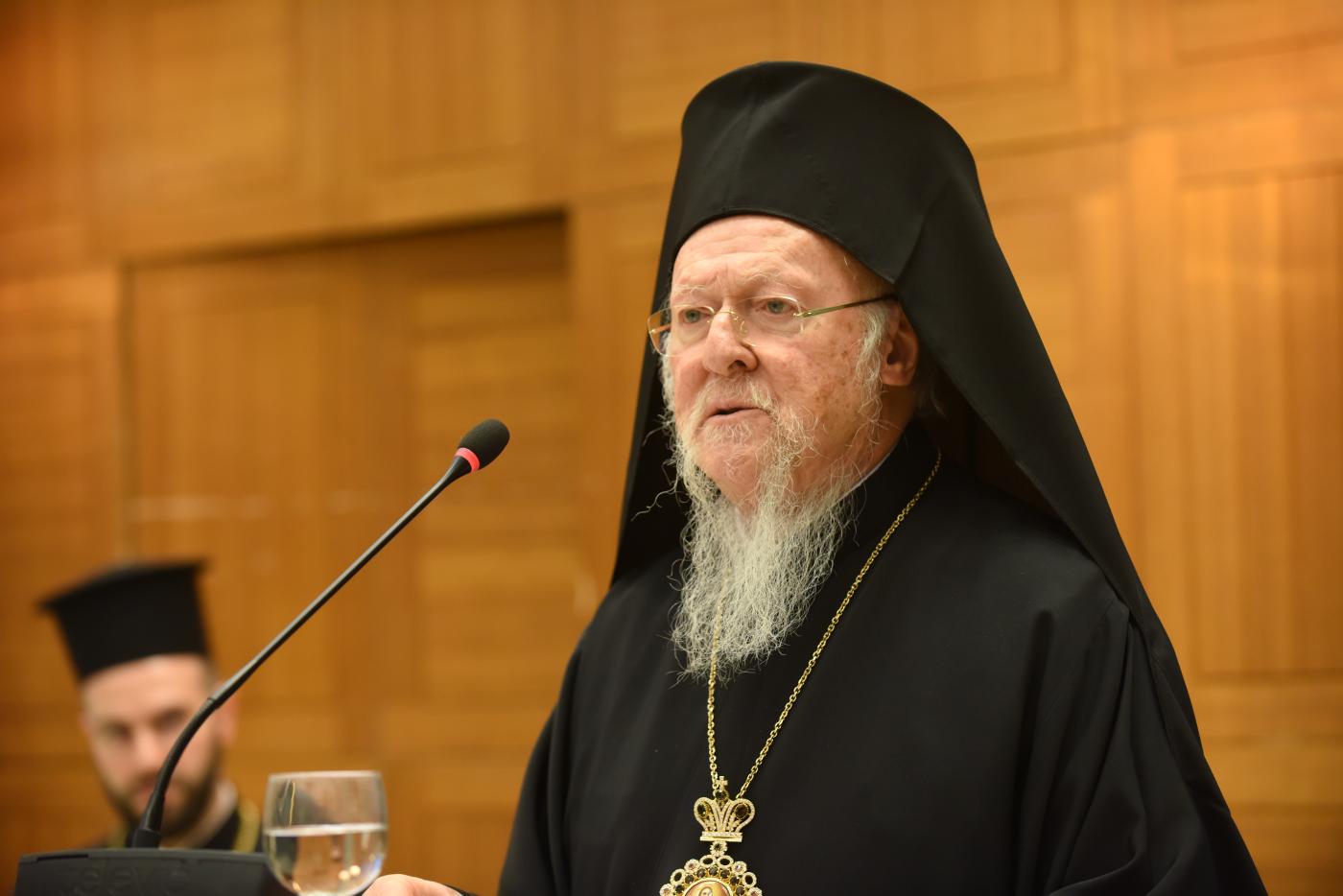Ecumenical Patriarch Bartholomew: It is the duty of the Orthodox Church to serve the cause of peace
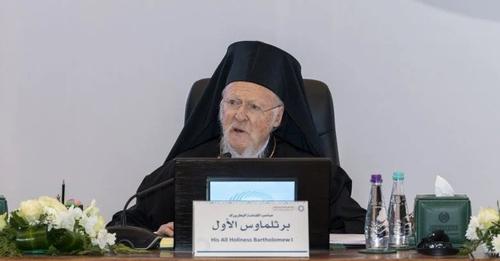

Clear references to the role that the Orthodox Church should play in the prevalence of peace were included in the speech of the Ecumenical Patriarch Bartholomew at the forum for the promotion of common values among the followers of religions, which is taking place in Riyadh, Saudi Arabia.
The Ecumenical Patriarch mentioned, among other things, that the essential function of religion is peacemaking. “In our times, the credibility of religions largely depends on their commitment to peace. Peace does not result automatically from economic and cultural development, from the progress of science and technology, or from high living standards.
It is always a duty, it requires vision, commitment, struggle, sacrifice, and patience. We believe that there are potential and inexhaustible reserves of peacemaking in the great religious traditions. Yet, the potential is not enough. We have to implement and cooperate for peace; we have to become effective factors in human progress”.
As the Ecumenical Patriarch explained in his speech, “The Orthodox Church considers it is her duty to encourage all that which genuinely serves the cause of peace and paves the way to justice, fraternity, true freedom, and mutual love among…all peoples who make up the one human family. She suffers with all people who in various parts of the world are deprived of the benefits of peace and justice.”
These statements by the Ecumenical Patriarch come at a critical time, more than two months after Russia’s invasion of Ukraine. They are in stark contrast to the stance taken by Patriarch Kirill of Moscow, who – even after the bombing of churches and the death of so many (Christian) civilians – continues to “bless” the attacks and to address in his sermons a speech that is anything but promoting peace.
The Ecumenical Patriarch Bartholomew, also met on Wednesday, May 11, 2022, with the Minister of State for Foreign Affairs of Saudi Arabia, Adel al-Jubeir, who expressed his admiration for the initiatives of the Ecumenical Patriarch and the actions of the Ecumenical Throne.
The meeting was also attended by the Deputy Foreign Minister, Fahad Abualnasr.
The Ecumenical Patriarch had a meeting with Rashad Hussain, US Ambassador for religious freedom.
The same night, the Ecumenical Patriarch visited the Greek Embassy, where he was warmly welcomed by the Ambassador of Greece in Riyadh, Alexis Konstantopoulos, in the presence of his associates and Greeks working in Saudi Arabia.
The Ecumenical Patriarch spoke paternally to those present and blessed them. Afterwards, the Ambassador hosted a dinner in honor of the Ecumenical Patriarch and his entourage, which was also attended by the Ambassador of Cyprus, Stavros Augustidis, diplomats, and businessmen.
Read below the address by the Ecumenical Patriarch Bartholomew at the Forum for Promoting Common Values among the Followers of Religions in Riyadh, Kingdom of Saudi Arabia
Your Excellencies,
Esteemed religious leaders,
Ladies and gentlemen,It is a great joy and a unique privilege to address this distinguished gathering here at the Forum for Promoting Common Values among the Followers of Religions in Riyadh, Saudi Arabia ον the kind invitation of His Excellency Sheikh Muhammad Al-Issa, Secretary-General of the Muslim World League.
We speak in the name of the Ecumenical Patriarchate, which is devoted to dialogue and rapprochement, building bridges between diverse faiths, cultures, and peoples, between humanity and the natural environment, as well as promoting peace and solidarity worldwide, for the sake of the protection of human dignity. The Ecumenical Patriarchate has initiated interfaith dialogues between the three monotheistic religions and has cultivated other interreligious projects. We continue these efforts with sincerity and confidence.
It is impossible to understand the past, analyze the present, or imagine the future of humanity without referring to the role of religion. Religion is not only connected with the deep concerns of the human being; it is also related to the identity of peoples and civilizations. Religion has created and preserved the greatest cultural achievements of humankind, essential moral values, respect for human dignity, and the integrity of creation. Our sacred texts include precious anthropological knowledge. Religion is the arc of wisdom and the spiritual inheritance of humanity. Culture has, in general, the impact of religion.
Another essential function of religion is peacemaking. In our times, the credibility of religions largely depends on their commitment to peace. Peace does not result automatically from economic and cultural development, from the progress of science and technology, or from high living standards. It is always a duty, it requires vision, commitment, struggle, sacrifice, and patience. We believe that there are potential and inexhaustible reserves of peacemaking in the great religious traditions. Yet, the potential is not enough. We have to implement and cooperate for peace; we have to become effective factors in human progress.
“The Orthodox Church considers it is her duty to encourage all that which genuinely serves the cause of peace and paves the way to justice, fraternity, true freedom, and mutual love among…all peoples who make up the one human family. She suffers with all people who in various parts of the world are deprived of the benefits of peace and justice.” Given the tremendous contemporary challenges, the most appropriate way to peace and reconciliation is sincere interreligious dialogue and mutual respect. As the Holy and Great Council of the Orthodox Church (Crete, 2016) stated: “Honest interfaith dialogue contributes to the development of mutual trust and to the promotion of peace and reconciliation.”
Thus, we can realize the gravity of the error of those modern thinkers who underestimated the religious phenomenon, the fault of those who were blind in front of the dynamism of religion, of the culture it created, of its contribution to peace and its enormous social impact. Progressive intellectuals are, in a way, accused of having indirectly strengthened fundamentalist excesses in religion since they downgraded religious faith and practices. Fundamentalist explosions are often reactions to an offence of faith. Dialogue and openness are the antidotes to fundamentalism. Openness to the “other” does not threaten our particular identity. On the contrary, it deepens and enriches it.
Two of the most passionate concerns during our ministry as Ecumenical Patriarch have been protecting the natural environment and fostering a culture of solidarity. We believe that the ecological crisis reflects an anthropological impasse, the spiritual crisis of contemporary man and contradictions of his rationalism, and the arrogance of his knowledge and technology. This approach cannot only contribute to discovering hidden dimensions of the ecological problem but also reveals new possibilities to face and overcome it.
Solidarity is the core of our vision of a just and sustainable world. This notion dynamically expresses the social and political dimension of “fraternity” and, at the same time, promotes the shared responsibility of all human beings to work for the common good. On the other hand, solidarity refers to the unconditional love and support of our fellow humans in need, irrespective of any political and social conditions.
Nobody – not a nation, a state, religion, science or technology – can face our problems alone. Our future is shared, and the way toward this future is a mutual journey. We need common responsibility, common mobilization, common efforts, and common goals; we truly need one another. We are always closer to one another in more ways than we are distant from or different from one another. We firmly reject the theory of the inevitable “clash of civilizations.” Building bridges between faiths, bridges with nature, and promoting a culture of peace and solidarity are responsibilities that we owe not only to the present generation. Future generations are entitled to a life in dignity, to a world free of hatred and violence, unspoiled by pollution and natural devastation, a society of peace and fraternity. At these crucial moments that the world is experiencing following the war in Ukraine, we appeal to the responsible authorities and international organizations, and all people of goodwill to strive for the end of all hostilities and the establishment of just and sustainable peace.
In all these efforts, we need the spiritual strength and contribution of religions. Their traditions are an inexhaustible source of crucial truths for human beings and the world, for our relation to God, to ourselves, to others and to creation, for our freedom, for the meaning of life, and the final destination of all. True faith does not release us from our responsibility to the world. On the contrary, it strengthens us to give witness to our hope.
In this spirit, we express our wholehearted gratitude for this invitation and this encounter, and we wish you all good health and every blessing from Above.
Thank you for your kind attention!
More Photos:






Source: orthodoxtimes.com

